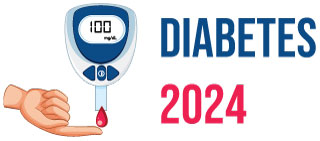Immunology/Beta Cell Replacement
Immunology and beta cell replacement therapies stand at the forefront of diabetes research and treatment. Understanding the immunological mechanisms behind type 1 diabetes is critical for developing targeted therapies that preserve beta cell function. In type 1 diabetes, the immune system mistakenly attacks and destroys insulin-producing beta cells in the pancreas. Immunological research aims to unravel the complex interplay between immune cells, cytokines, and autoantibodies involved in this autoimmune destruction. By deciphering these mechanisms, scientists can develop immunomodulatory therapies that halt or slow down beta cell destruction, preserving residual beta cell function in newly diagnosed individuals and potentially reversing the disease process in those at risk.
Beta cell replacement therapies offer a promising avenue for restoring insulin production in individuals with type 1 diabetes who have lost significant beta cell mass. Approaches such as pancreatic islet transplantation and stem cell-derived beta cells hold the potential to provide long-term insulin independence and improved glycemic control.
Keywords: immunology, beta cell replacement, type 1 diabetes, autoimmune destruction, immunomodulatory therapies, pancreatic islet transplantation, stem cell-derived beta cells, insulin independence, glycemic control.
Related Sessions
Tags
- Diabetes 2024 Conference
- Diabetes 2024 Events
- Diabetes Meetings
- Diabetes Hybrid Event 2024
- Diabetes Event in Las Vegas
- Diabetes Event in USA
- Diabetes Event in Las Vegas 2024
- Diabetes Summit
- Diabetes Summit 2024
- Diabetes Webinar
- Diabetes Webinar 2024
- Upcoming Diabetes Event
- Endocrinology Conferences
- Endocrinology Conferences 2024
- Endocrinology Events
- Endocrinology Events 2024
- Endocrinology Meetings
- Endocrinology Hybrid Event 2024
- Endocrinology Event in USA
- Endocrinology Event in Las Vegas
- Endocrinology Event in Las Vegas 2024
- Endocrinology Summit
- Endocrinology Summit 2024
- Endocrinology Webinar
- Endocrinology Webinar 2024
- Upcoming Endocrinology Event
